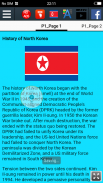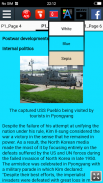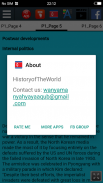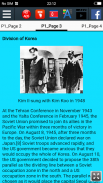








History of North Korea

Description of History of North Korea
The history of North Korea began with the partition of Korea (smell) at the end of World War II in 1945, and the creation of the Communist-aligned Democratic People's Republic of Korea (DPRK) headed by the former guerrilla leader, Kim Il-sung. In 1950 the Korean War broke out. After much destruction, the war ended with the status quo being restored. The DPRK had failed to unify Korea under its leadership, and the US-led United Nations force had failed to conquer North Korea. The peninsula was divided by the Korean Demilitarized Zone, and a US military force remained in South Korea.
Tension between the two sides continued. Kim Il-sung remained in power until his death in 1994. He developed a pervasive personality cult and steered the country on an independent course in accordance with the principle of Juche (or self-reliance). However, with natural disasters and the collapse of the Soviet Bloc in 1991, North Korea went into a severe economic crisis. Kim Il-sung's son, Kim Jong-il, succeeded him, and was in turn succeeded by his son, Kim Jong-un. Amid international alarm, North Korea developed nuclear missiles.
























